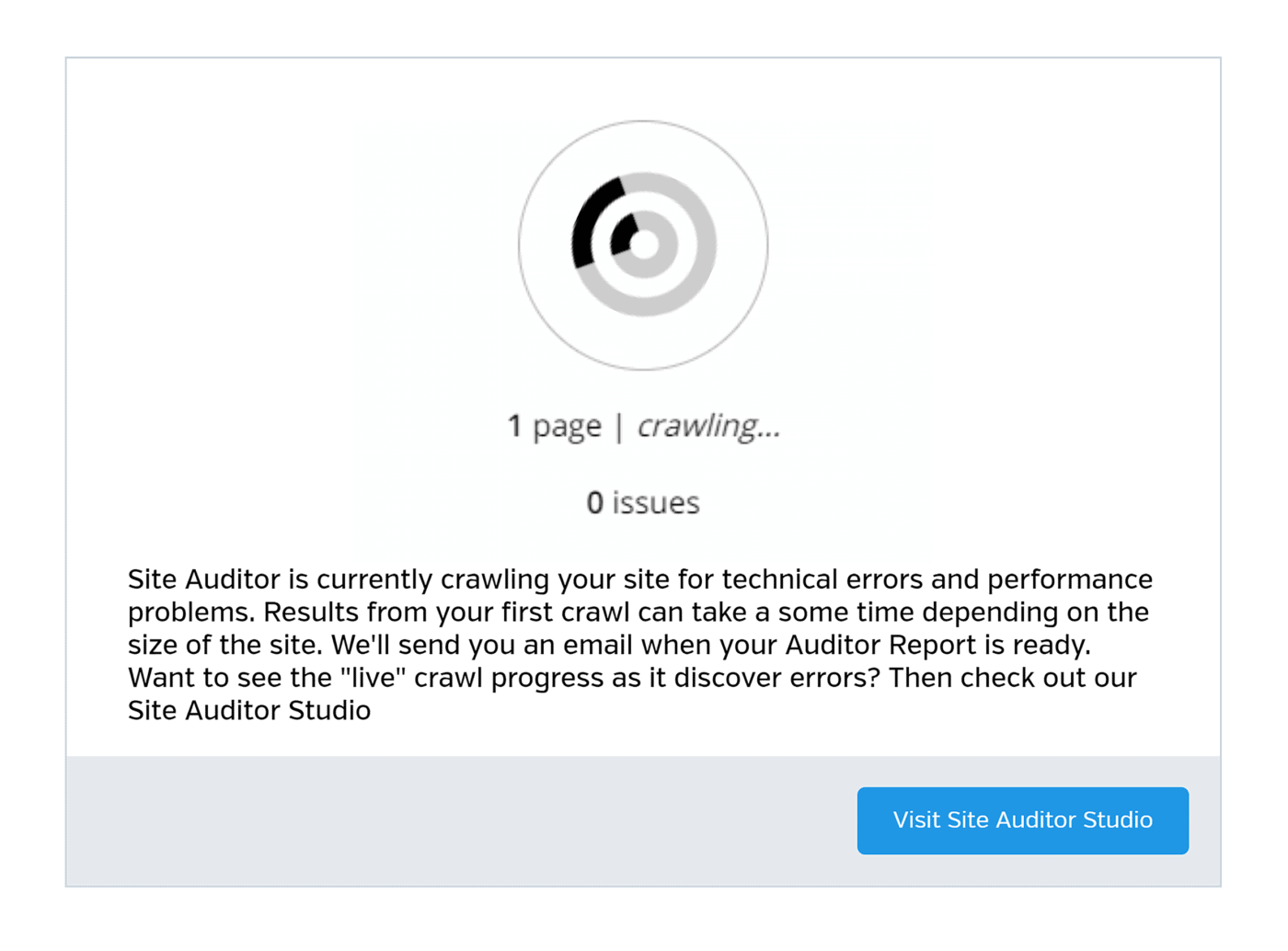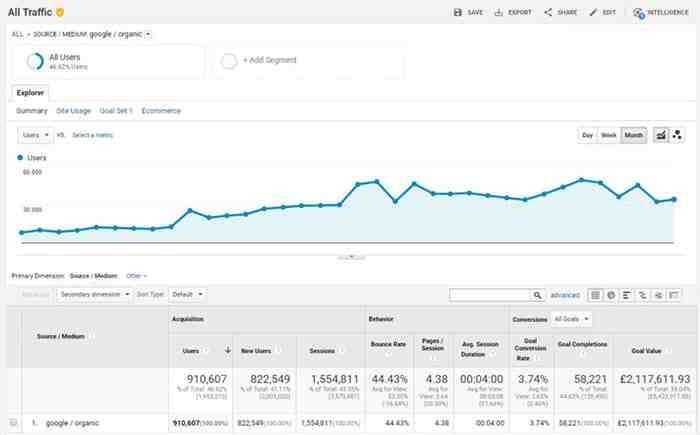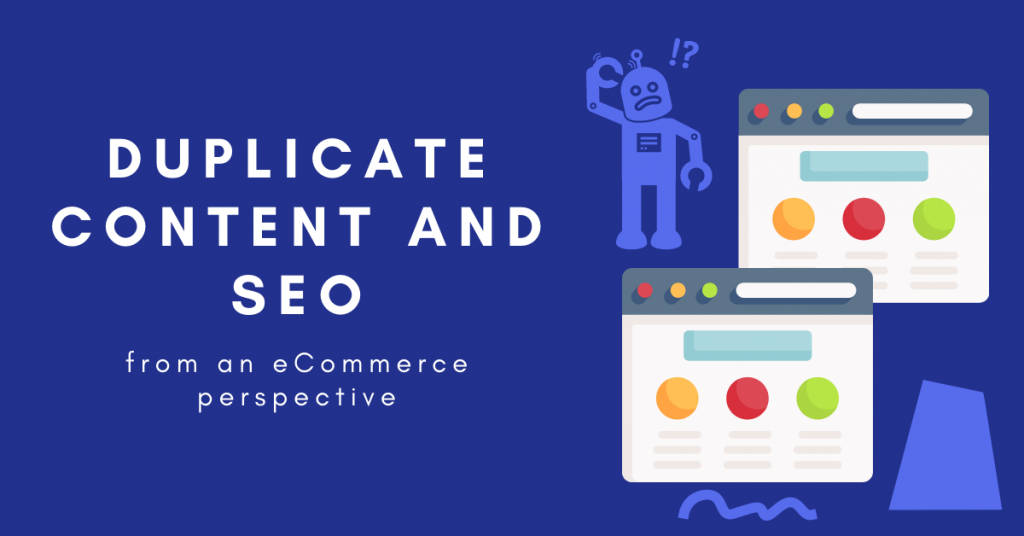Over half (53%) of all consumers in the United States turn to a search engine such as Google to find information about a product before making a purchase.
Yes, organic search is still the highest ROI channel.
If you’re not incorporating SEO into your digital marketing strategy, you might be missing out on a huge opportunity.
It’s 2022, and SEO is more important than ever for direct-to-consumer (DTC) ecommerce brands.
Done right, you can use educational content to achieve high-ranking search results that increase your brand’s authority and bring in more qualified customers than ever before—and have the ability to attribute revenue back to your content efforts.
But how do you know what works and what doesn’t?
We give you our cheat sheet of three potential mistakes you can make, from content creation to SEO attribution.
Then we’ll help you learn how to discover what really works versus what doesn’t, so you can demonstrate true ROI on your intensive content work.
Mistake 1: Not Thinking About The Revenue Impact & End Goals Of Your Educational SEO Content
Having a blog and publishing regular content is time consuming.
And when other priorities pile up, it can be easy to push SEO and content creation to the bottom of your list—and that’s understandable.
Marketers like you constantly have many ongoing campaigns and no shortage of suggestions for what to do from team members throughout the company.
For ecommerce sites, it all comes down to revenue.
Your content can bring new eyes to your website, nurture people already in your funnel, and finally be the part of your digital strategy that convinces a website browser to become a new customer.
As you can see, it is very important to think about your SEO content and what its end goals are.
The Solution: Plan SEO Attribution From The Get-Go
Before you launch your digital marketing strategy, think about how you plan to track the impact of your blog on your bottom line.
Make sure you clearly see how SEO-centric content drives readers and shoppers.
Start by finding a platform that shows you the impact of all your marketing and organic content, plus helps you understand the exact role SEO plays and which part of the funnel it affects.
Mistake 2: Picking Content Ideas Without A Solid Strategy

You probably know a lot about what your potential customers want.
Whatever you sell, whether it’s razors, skin serums, bidets, you name it, you know there are endless amounts of information to share about it that will actually enrich the lives of your readers.
You can live and breathe weight loss culture and feel like you know exactly what your readers want.
But that doesn’t mean you should skip the topic and keyword research process.
What you instinctively think will resonate with your readers may not necessarily be the right content.
You may miss out on additional high-quality ideas if you don’t create content based on a strategy.
The Solution: Start With An Idea, Then Confirm It With Research
First things first: you can start with your instincts for issues, then verify them.
Next, based on what you know about your business, decide on broad categories for content that people want to consume.
For example, if you are a makeup company, instinctive topics might include:
Once you have basic ideas for your content, use those to narrow your ideas down to specific keywords. You can do this using free methods like Google suggested searches or other paid keyword research tools.
Then take it a step further. Generate your content ideas with user interviews or by searching social media comments for frequently asked questions and trending topics.
After producing a list of keywords, you can start creating content on that topic.
Finally, continue to refine these steps into a strategy based on what’s actually going on by using attribution.
With an attribution platform that can track how different blog categories on your site contribute to conversions, you can zero in on topics you know are performing well, then repeat your keyword research to further improve your content.
Mistake 3: Prioritizing Vanity Metrics Over Revenue

Have someone on your team who isn’t convinced why you need to focus on SEO?
Tell them that nearly half of marketers say organic search has a higher ROI than any other marketing channel.
SEO is so much more than just a way to drive traffic to your website.
While vanity metrics like pageviews are exciting, there are better ways to track the success of your SEO.
Instead, you should tie your efforts back to conversions and revenue.
If you’re not tracking how your SEO strategy affects these things, you’re missing out on seeing how impactful this channel could be, which in turn affects how much money and time your company is willing to devote to SEO content.
The Solution: Monitor & Present These SEO KPIs
Avoid only reporting vanity metrics like page views, conversions and conversion rates.
The opinions expressed in this article are the sponsor’s own.
What parts of SEO should I focus on first?

It will put you well on your way to implementing the best possible SEO strategy for you and your clients.
- Your audience & Industry. …
- Keyword research. …
- User intent. …
- Analytics and reporting. …
- Mobile SEO. …
- crawling …
- Indexing. …
- Technical SEO.
What areas of SEO are most important? At WebTek, we say the most important parts of SEO and the most important Google ranking factors are the website titles and the heading tags. Titles represent the main real estate of any website – they are your best chance to tell Google exactly what your website or webpage is all about.
Is Google a SEO?

SEO refers to search engine optimization, or the process of optimizing a website to make it easy to find via search engines like Google.
What is an example of SEO? How they determine the “best” result is based on an algorithm that takes into account authority, relevance to that query, loading speed and more. (For example, Google has over 200 ranking factors in their algorithm.) In most cases, when people think “Search Engine Optimization†they think “Google SEO†.
Does Google have SEO services?
There is no cost to appear in organic search results like Google’s, and making changes to improve your website’s SEO can greatly impact your search rankings over time. Learn more about how Google organic search works and find tips to get started here.
How much does Google SEO cost per month?
Important facts about SEO prices & costs include the following: Average SEO costs are $100-$250 per hour for US SEO agencies. SEO fees often range from $2,500 to $10,000 per month for US agencies. The average SEO plan costs $2819 per month (per Ahrefs)
What is Google’s SEO tool?
Google offers a constantly updated suite of tools that are useful for SEO. These tools help publishers understand why a page is underperforming and guide them with specific advice to improve the website’s performance in order to rank better.
Does Google have free SEO tools?
There are tons of free SEO tools, including Answer the Public, Ubersuggest and Google Analyics. What is the best free SEO tool? The Google suite of tools are powerful and free. Google Analytics and Google Search Console are must-haves.
What is meant by Google SEO?
Search engine optimization (SEO) is the practice of orienting your website to rank higher on a search engine results page (SERP) so that you get more traffic. The goal is typically to rank on the first page of Google results for search terms that mean the most to your target audience.
What do you mean by the SEO?
SEO means search engine optimization and is the process used to optimize a website’s technical configuration, content relevance and link popularity, so that its pages can be easily found, more relevant and popular in the face of user search queries become, and as a consequence, search engines rank them better.
What is SEO and examples?
What is search engine optimization? Search engine optimization (SEO) is the art and science of getting pages higher in search engines like Google. Since search is one of the main ways people discover content online, ranking higher in search engines can lead to an increase in traffic to a website.
Is SEO just Google?
SEO is not just about Google! Yes, that’s true, I really mean it and I stand by my word. It is common practice for SEOs to invest all their time and energies in just one search engine, but this is a limited approach.
Is SEO the same as Google ads?
SEO works to get your site higher in the organic rankings so you rank for customers who write queries applicable to your content. Ads allow you to target specific keyword phrases and then create an ad that promotes your site and content to those using those keywords.
Will SEO become obsolete?
Don’t be fooled: SEO is not dying, but it is evolving and much more than it was years ago. If you’ve been debating whether or not to invest in SEO for your business, read on to learn why SEO isn’t dying – but actually thriving – in 2021.
What is SEO based on?
âSEOâ refers to search engine optimization, or the process of optimizing a website so that people can easily find it through search engines like Google. By “content” we mean any information that resides on the Internet and can be consumed on the Internet (more on the different types of content below).
Is SEO part of digital marketing?
Seo is really an integral part of digital marketing. It is responsible for taking your website visibility to a higher position and keeping you ahead of all your competitors. It increases website visibility, user traffic, conversion rate, and ROI.
Is SEO necessary for digital marketing? In short, SEO is crucial because it makes your website more visible, and that means more traffic and more opportunities to convert prospects into customers.
Is SEO a part of marketing?
SEO is an important part of your digital marketing strategy and some knowledge is essential no matter what area of digital marketing you specialize in. Internet Live Stats claims that there are over 66,000 searches per second on Google every day.
What category does SEO fall under?
SEO is where you focus 100% on ranking in organic results. SEM is when you tap into SEO and PPC to get traffic from search engines. So yes, SEM is a broad term that includes SEO and PPC. Which means SEO falls âunderâ the umbrella category of SEM.
Is SEO part of online marketing?
The meaning of SEO (Search Engine Optimization) SEO is part of digital marketing, and it is actually a set of tools and best practices that help websites achieve higher search engine rankings.
What is SEO in marketing?
Search engine optimization (SEO) is the practice of orienting your website to rank higher on a search engine results page (SERP) so that you get more traffic. The goal is typically to rank on the first page of Google results for search terms that mean the most to your target audience.
Is SEO part of content marketing?
Content marketing is not the new SEO but it has become an important part of SEO. Imagine that both SEO and content marketing are two different people working on the same team. The SEO guy can identify the keywords that are important to your website and business and give that to the content marketing girl.
Is digital marketing and SEO are same?
SEO is part of digital marketing, and it is actually a set of tools and best practices that help websites achieve higher search engine rankings.
Is SEO a digital marketing channel?
The tools in the digital marketing toolbox include websites; Search Engine Marketing (SEM) â which is an umbrella term that includes the following digital marketing channels: search engine optimization (SEO) and paid search â as well as online display advertising; social media marketing; mobile marketing; and email…
How much do SEO tools cost?
Project-based SEO services can cost anywhere from $1000 to $30,000. However, the average cost for project-based SEO services is $5000 to $30,000.
Are SEO tools worth it? Many SEO tools highlight issues or problems with your website. This information can be key in your website ranking and needs to be fixed quickly. Therefore, an SEO tool can help you solve problems with your website so that it works optimally and efficiently and suggest improvements.
How much does SEO cost on average?
Average SEO costs are $100-$250 per hour for US SEO agencies. SEO fees often range from $2,500 to $10,000 per month for US agencies. The average SEO plan costs $2819 per month (per Ahrefs) Foreign SEO companies can charge $10-$50 per hour.
Is it worth it to pay someone for SEO?
Bottom Line: The next time you are cold called or emailed by one of these SEO companies, save yourself time and money and disconnect as soon as possible. Unless you can pay top dollar for someone to create and manage your entire web presence, spend time and effort learning internet marketing.
How much should I be paying for SEO?
If you hire a top-level SEO company to run a local campaign, expect to pay $500.00 per month. A national or international campaign requires a minimum budget of $2,500 to $5,000 a month. Some companies offer a “trial package” at a lower price, without a contract.
How much does SEO tools cost?
If you hire a top-level SEO company to run a local campaign, expect to pay $500.00 per month. A national or international campaign requires a minimum budget of $2,500 to $5,000 a month. Some companies offer a “trial package” at a lower price, without a contract.
How much should you budget for SEO?
This survey also found that the median cost per month for SEO was between $2,500 and $5,000 per month for SEO services. Thirty-one percent paid over this range, up to $50,000, and just 18% paid less than $1,000.
Does Google SEO cost money?
There is no cost to appear in organic search results like Google’s, and making changes to improve your website’s SEO can greatly impact your search rankings over time.

